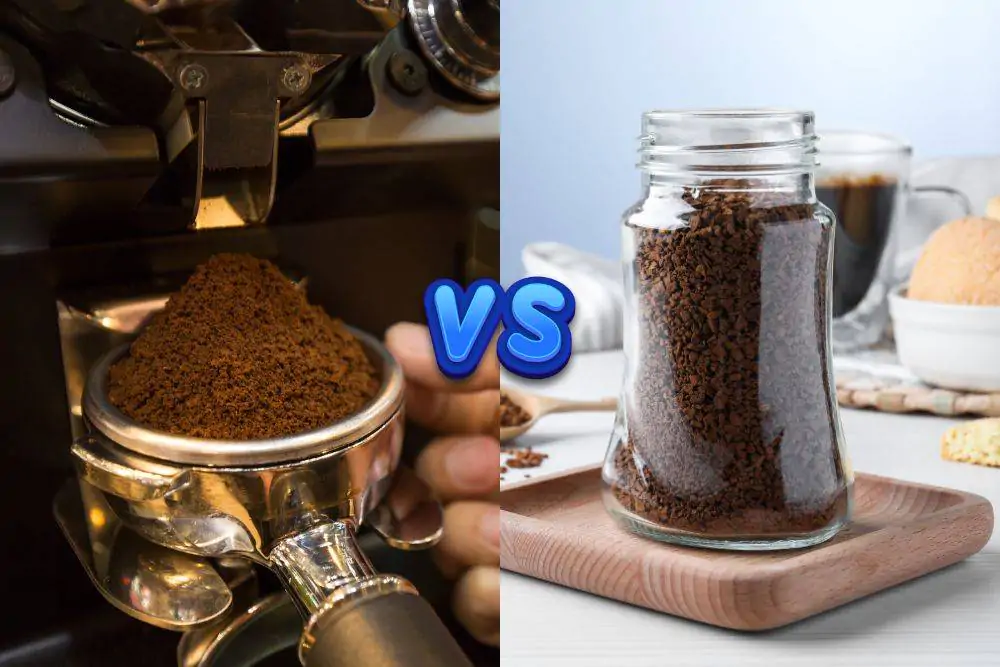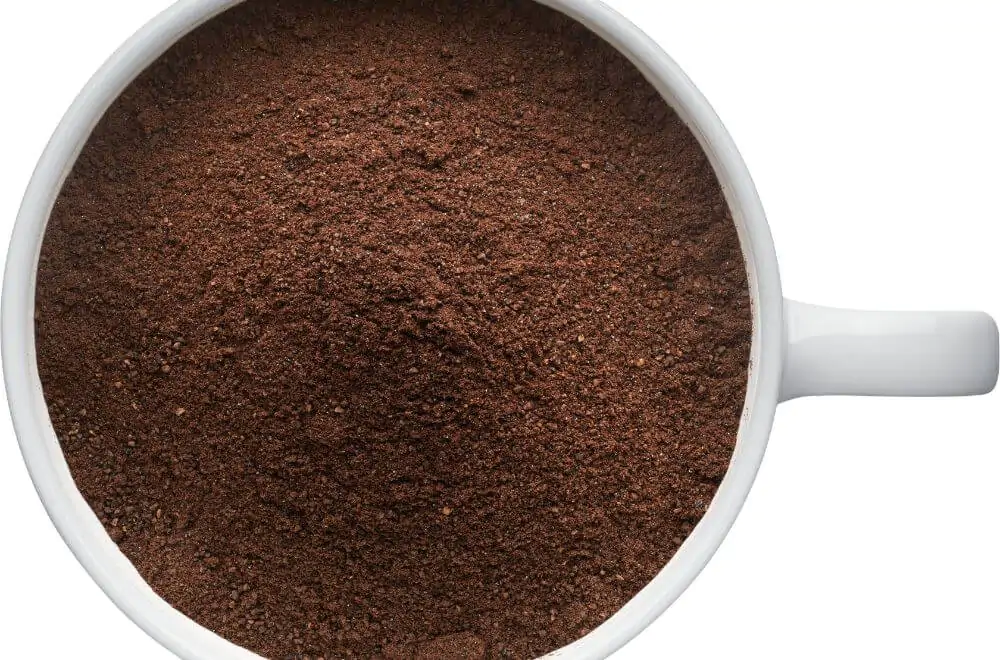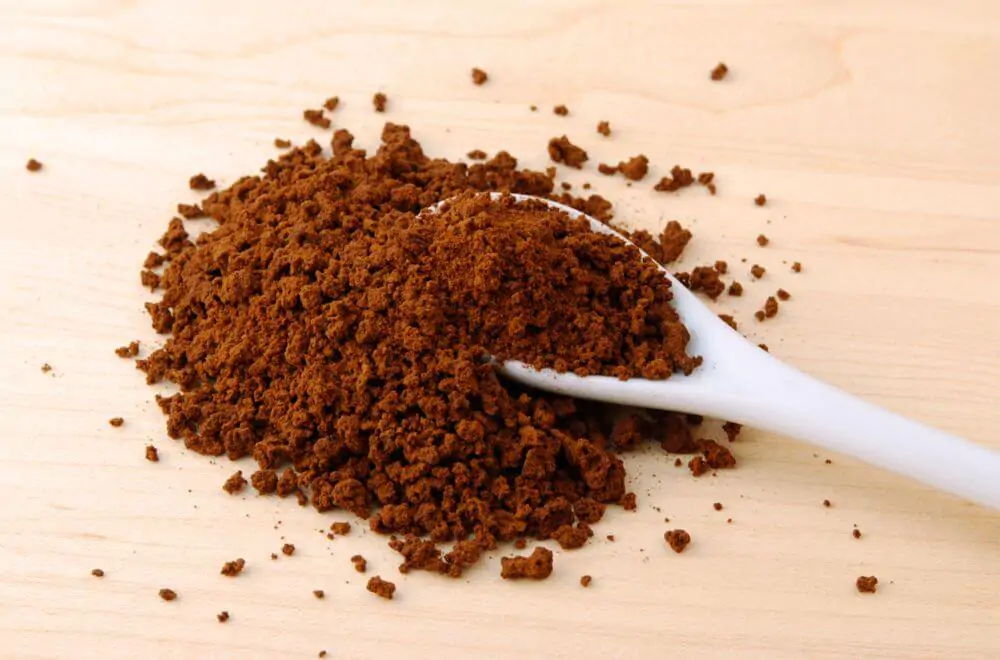Espresso powder or instant espresso for a quick fix? If you’re unsure which is for you, our espresso powder vs. instant espresso guide has all the answers.

When it comes to coffee, I like mine to be strong enough to keep me awake for hours on end. So, as you might imagine, I tend to prefer espresso compared to other brewed coffee options like drip coffee.
I recently discovered espresso powder, which I mistakenly thought was for drinking. However, after mixing it with hot water, I realized my error pretty quickly. Instead, I wanted instant espresso powder, aka instant coffee.
Espresso powder is highly concentrated and used for baking, while instant espresso is made for drinking. So you don’t make the same mistake, our espresso powder vs. instant espresso guide will detail the differences and similarities between these two products. You might also be wondering, “How is coffee powder made?”.
- What Are Espresso Powder And Instant Espresso?
- What Do Espresso Powder And Instant Espresso Have In Common?
- Espresso Powder Vs. Instant Espresso: The Differences
- What's Better About Espresso Powder?
- What's Better About Instant Espresso?
- Who Should Buy Espresso Powder (And Why)?
- Who Should Buy Instant Espresso (And Why)?
- FAQs About Espresso Powder And Instant Espresso
What Are Espresso Powder And Instant Espresso?
Although both of these products are made from ground coffee beans, they’re quite different in how you consume them. Espresso powder is made from pre-brewed coffee grounds, so it’s much more intense and concentrated.
Espresso powder is made by grinding coffee beans, brewing those coffee grounds, drying them out, and then crushing them into a fine powder. In fact, if you wanted to make espresso powder at home, you could use leftover espresso grounds so you don’t have to toss them into the trash.
Instant espresso is like instant coffee, so you’re supposed to mix it with hot water and enjoy it as a regular cup of coffee. First, the coffee beans are roasted, then ground into a loose powder with relatively large granules.
During the grinding process, many manufacturers push nitrogen through the beans to capture the aroma. Then, that scent is added back into the mix later on.
In the next step, manufacturers will brew the coffee grounds, much as you would in a coffee shop (but on a much larger scale). After brewing, the liquid is pumped through a system that extracts most of the oxygen, leaving behind a thick, gooey syrup. That syrup is then freeze-dried at extremely cold temperatures to lock in both the flavor and consistency.
The frozen concoction is broken down into granules, and then the spray-drying process begins. The coffee is heated in a vacuum, allowing it to turn from a solid to a gas while skipping the liquid phase. This process extracts all remaining water from the mixture, leaving behind concentrated instant coffee.
What Do Espresso Powder And Instant Espresso Have In Common?

There are a few things that these products have in common, which is partly why some people confuse the two. Here’s a quick breakdown of the similarities:
- Coffee flavor: Since both products are made from ground espresso beans, they have a similar flavor. However, espresso powder is much more intense and concentrated, so it is rarely used for drinking. Instead, it can add a coffee-flavored punch to any recipe, such as brownies.
- Source materials: While the production processes of these products are wildly different, they both use the same starter ingredient – espresso coffee beans.
- Appearance: At first glance, it would be easy to mistake espresso powder and instant espresso coffee. It’s only when you look closer and pay attention to the size and consistency of the granules that you can tell the difference.
Espresso Powder Vs. Instant Espresso: The Differences
| Espresso Powder | Instant Espresso |
| Fine powder | Relatively loose granules or crystals |
| Intense and chocolatey | Smooth like regular espresso |
| Used in espresso machines or for baking | Used for instant coffee |
What’s Better About Espresso Powder?
Espresso powder is relatively common in desserts because it enhances the chocolate flavor of any dish. So, bakers love using this powder to add a kick to anything chocolatey, such as cookies, brownies, cakes, and more.
Another benefit of espresso powder is that you can make it at home. If you’re already brewing espresso coffee, you can save those coffee grounds, bake them in the oven, and then crush them into a fine powder.
That said, a little goes a long way, so if you’re drinking espresso regularly, you don’t want to keep making the powder each time. Otherwise, you better take up a baking hobby so you can use the powder as often as you brew your coffee.
What’s Better About Instant Espresso?
If you’ve paid attention to espresso machines before, you know they can be pretty expensive and somewhat complicated to operate. While at-home machines are super convenient, it can be hard to justify such a large purchase.
Fortunately, instant espresso allows you to get the same dark roast coffee flavor without the expensive gadgetry in your home. Now, you can brew espresso the same way you make regular instant coffee, cutting down on the need for storage space.
Better yet, because instant espresso uses real coffee crystals, it delivers similar tastes and aromas. While this won’t be as delicious as a shot of espresso at the coffee shop, it’s still excellent for what it is. Technically, you could also convert instant espresso into a powder if you take the crystals and crush them with a mortar and pestle.
Because espresso powder is so concentrated and has a lot of caffeine, it’s too strong for most people. This is why instant espresso is more popular for drinking. You might also be wondering, are coffee pods instant coffee?
Who Should Buy Espresso Powder (And Why)?
Bakers and those who want to kick their chocolate recipes up a notch should try espresso powder. Even if the recipe doesn’t call for espresso powder, adding a dash of this stuff can make a noticeable difference.
That said, if you’re baking items for others to eat, make sure to tell them it contains caffeine. You can add a light dusting of espresso powder to different coffee drinks to get your caffeine fix; it does have a pretty bitter taste, so you have to plan accordingly.
Again, you can also make your own espresso powder at home, which makes sense if you’re already grinding your own coffee beans. For a softer flavor, use Arabica beans instead of Robusta. Plus, since you’re already brewing coffee you enjoy, you don’t have to worry about finding a product you like in the store.
Who Should Buy Instant Espresso (And Why)?

Instant espresso works the same as any other type of instant coffee powder, so it’s for those who want a quick coffee fix. That said, instant espresso is not as indulgent or smooth as traditional espresso, so I would only recommend it if you don’t have an espresso machine.
Those who love the taste of espresso but don’t want to go through the trouble of brewing it themselves should go for instant espresso. Instant espresso powder is much more affordable and easier to make, so you’re paying for the convenience of the whole process.
Also, if you want a stronger caffeine fix, it’s easy to just add more coffee crystals to your beverage for a higher caffeine content. This way, you don’t have to brew multiple shots of espresso. If you liked this post, you might also enjoy our round-up of the best Turkish coffee.
FAQs About Espresso Powder And Instant Espresso
Can I Use Instant Coffee Instead Of Espresso Powder?
You can use instant coffee as a replacement for espresso powder. However, if you’re using espresso powder for baking, then instant coffee won’t add an identical flavor or texture. While you can crush the granules into a fine powder, the taste concentration won’t be the same, so there will be some trial and error.
What Can I Substitute Instead Of Espresso Powder?
Cocoa powder works well as a substitute, but it won’t have the same kick. Regular instant coffee can also work, but if you’re going to go that route, we recommend using instant espresso. Again, the flavors won’t be a one-to-one translation, but it’ll get close enough to satisfy most tastebuds.
Can I Use Espresso Powder With An Espresso Machine?
You should not brew espresso powder for drinking. Even if you have a high-quality espresso machine, using powder instead of instant espresso can yield some pretty nasty results. The powder is far too bitter and concentrated, and you’ll feel more jittery afterward.
